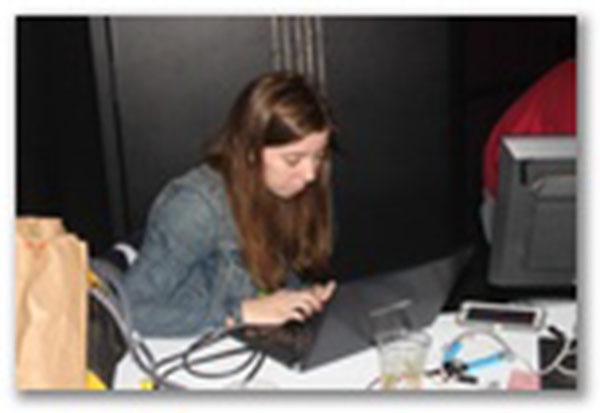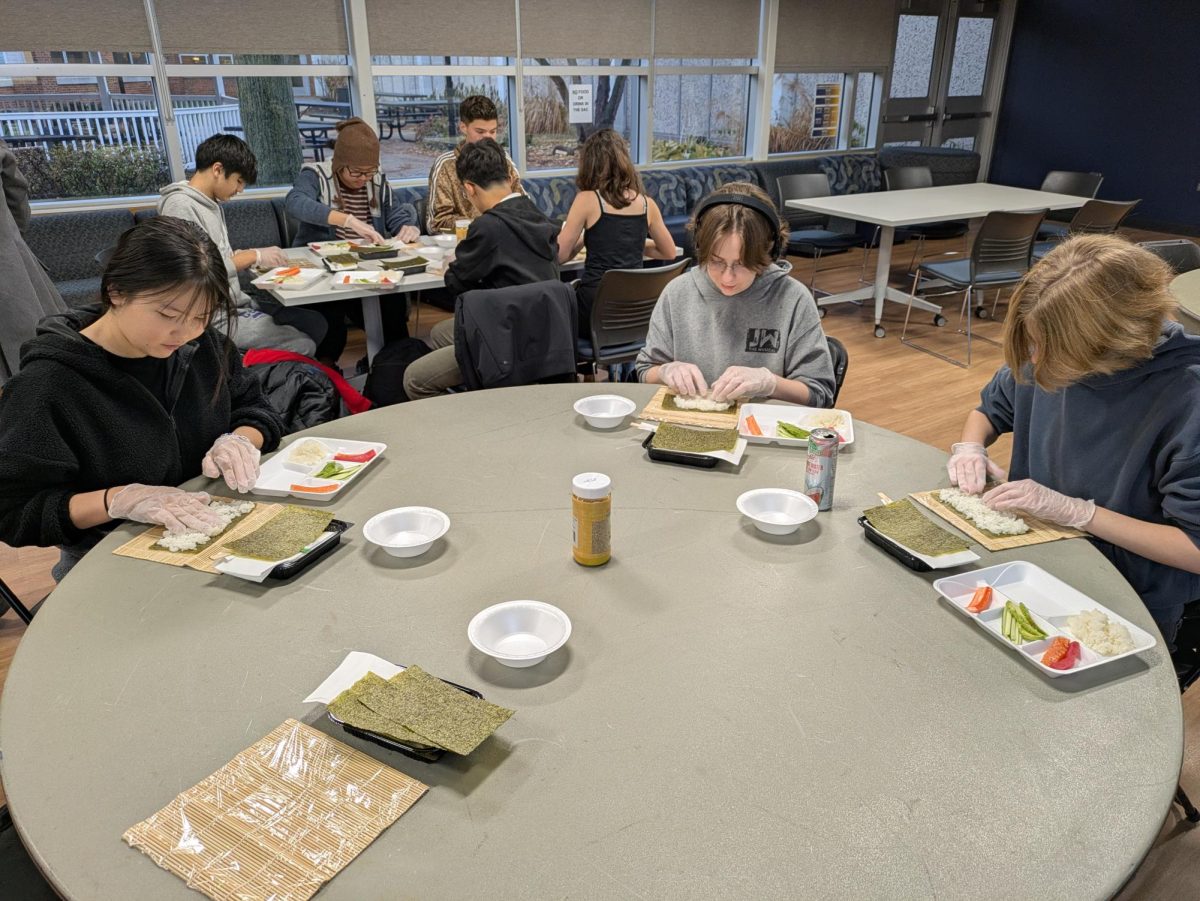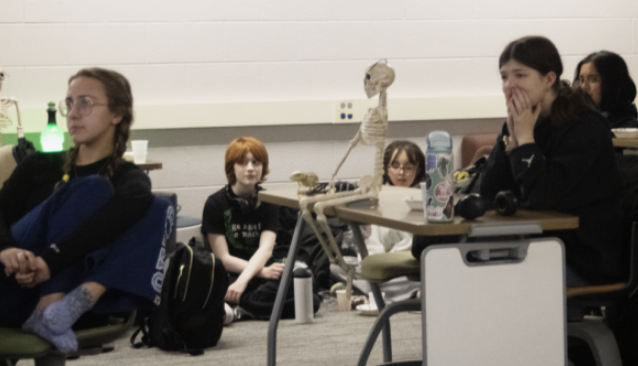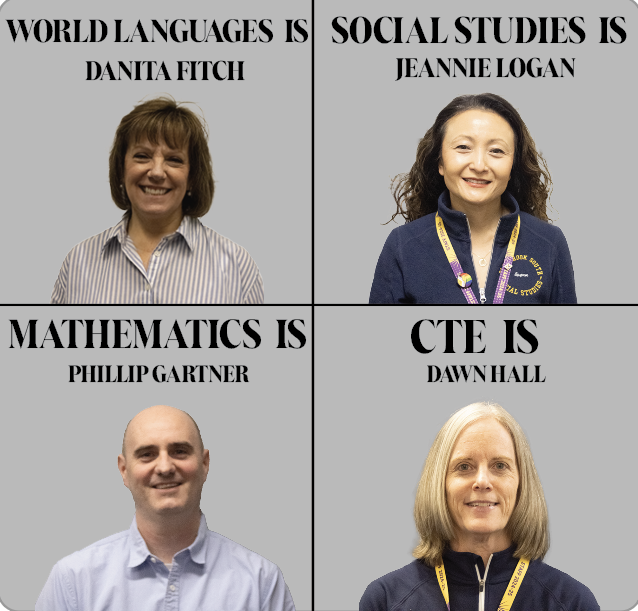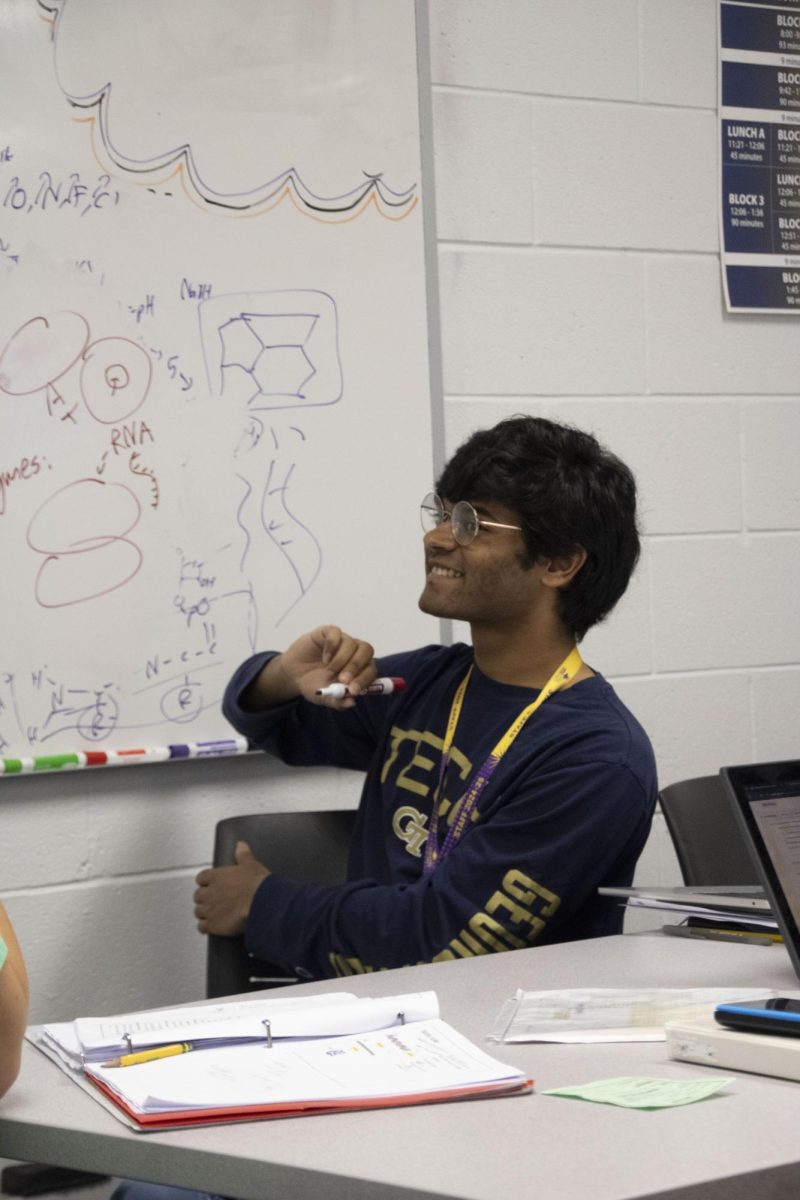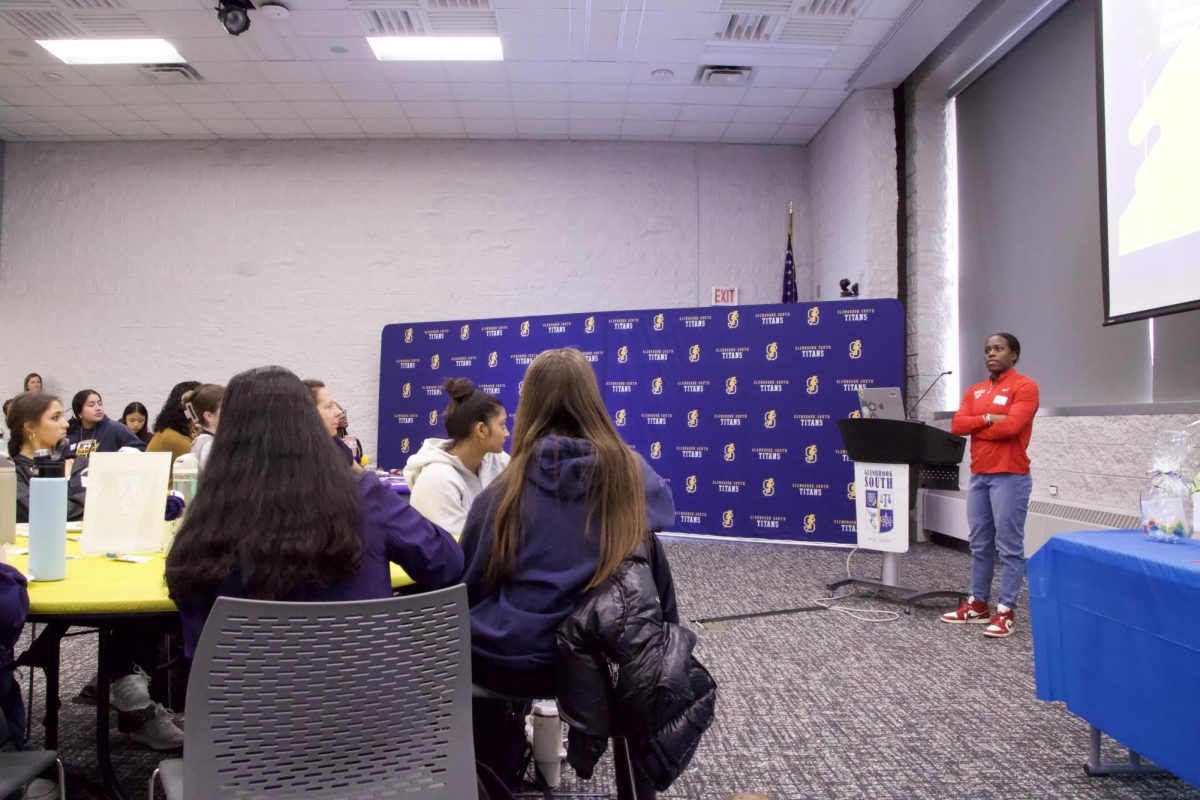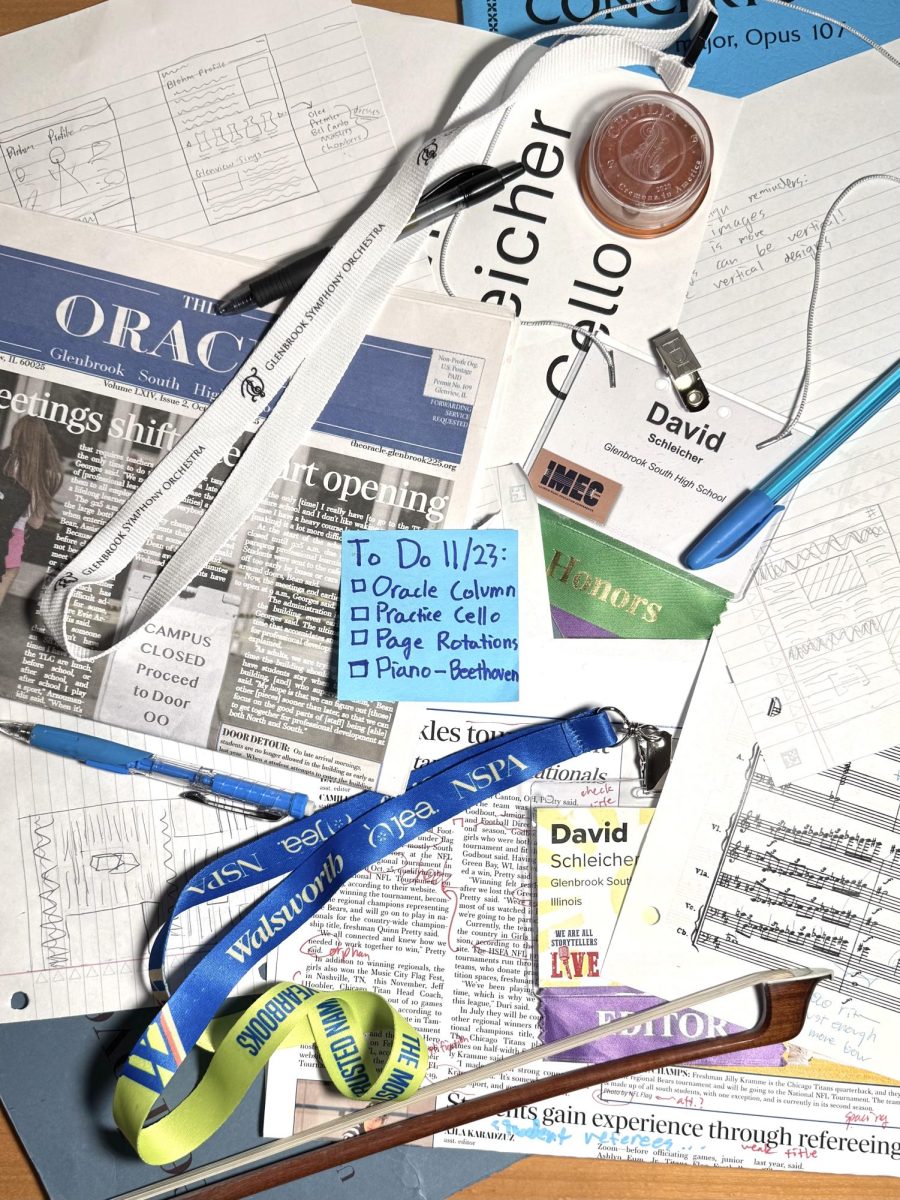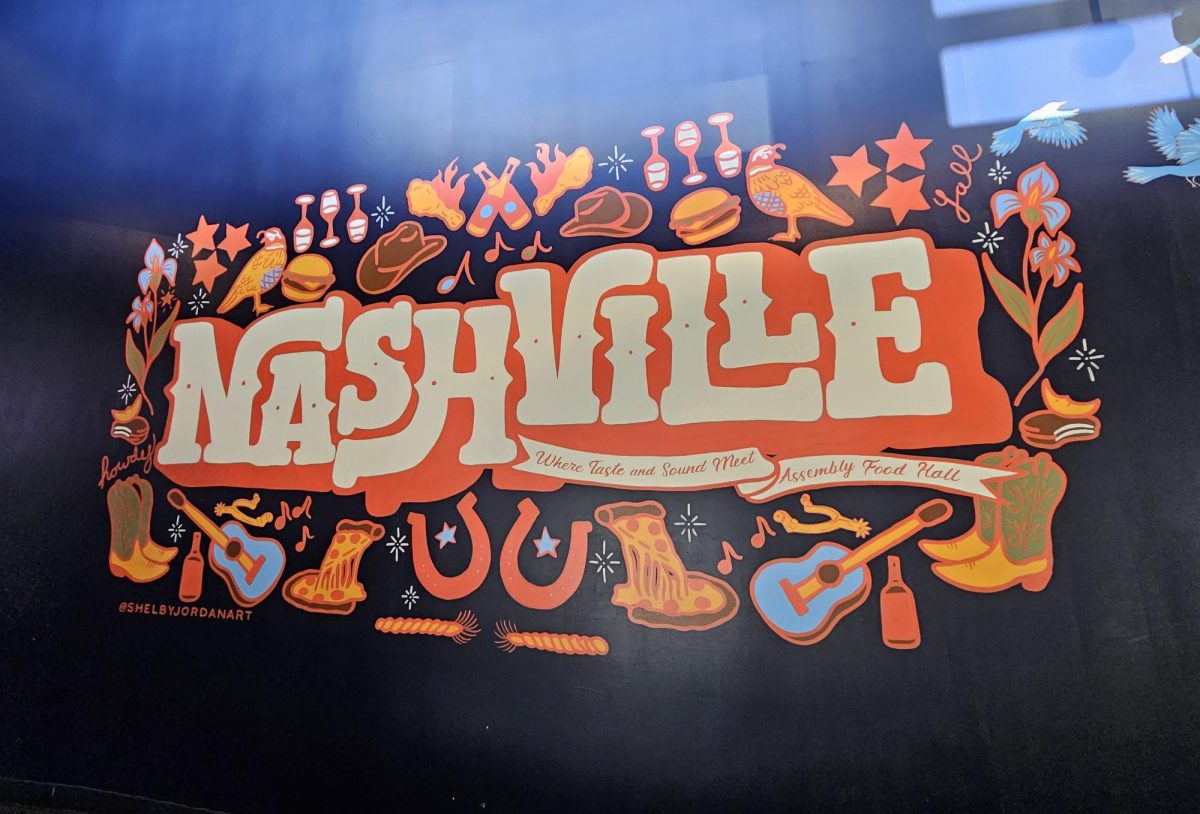While racing to build a cluster computer, running cutting-edge scientific applications and staying under a set power budget at the Student Cluster Competition, senior Lauren Ribordy broke barriers. Ribordy was the first female high school student to compete in the supercomputing SC14 Student Cluster Competition in New Orleans in Nov.
In company with national and international teams, Ribordycompeted alongside her male-dominated team from the Illinois Institute of Technology (IIT). Ribordy was one of three women and the first high school student to participate in the supercomputing competition this past fall. According to Ribordy, all of the people she has worked with have been supportive and want more women in the field.
“You need the other sides of the gender spectrum,” Ribordysaid. “You need to increase your capabilities as an entire team. I’m not a disadvantage; I’m an advantage.”
The competition involved the construction of a small supercomputer and building and running a series of scientific applications. Ribordy explained her job was to build an LED strip of lights that was programmed to show how much power the team was using.
“A lot of the guys would be watching their computer screens making sure nothing was wrong and there I am on the ground actually building,” Ribordy said.
The IIT team ranked ninth their first year competing. According to William Scullin, the team’s advisor, Ribordy never quit, and her optimism helped in the stressful competition.
“The fact that [Ribordy] kept calm and stayed optimistic actually helped,” Scullin said. “There were a lot of challenges, [but] the IIT team was laughing at every disaster that hit.”
Ribordy’s curiosity for computers started before this competition and well before becoming a student at South. KateRibordy, Lauren’s younger sister, noted her interest stems from childhood.
“She would almost live in the computer room at our old house,” Kate said. “[When she was young], she always gravitated towards the computer more than any conventional toy a kid would play with.”
Prior to her participation in the competition, Lauren has had internships at IIT and Bank of America. During her internship at IIT, an engineering student gave a presentation on building computers, and, according to Lauren, she was instantly intrigued. After getting her dad on board with the project, they began and completed the complex process of building a computer the summer before Lauren’s sophomore year.
“It was really fun,” Lauren said. “[It was also] super scary because you are handling these really expensive, several hundred dollar parts.”
In the summer of 2014, Lauren had an internship at the Bank of America. According to Lauren, she worked as a Java developer in the credit trade department to make a tool that would safely correct credit trades with another intern.
“[The internship] was really interesting for me because I never really worked with a lot of the components that I worked with [at the Bank of America],” Lauren said. “I learned a lot in general.”
At South, Lauren is a part of the math team, and she helped start a junior chapter of the national organization the Society of Women Engineers and is currently president of the club. The goal of this club is to expose females to the opportunities in science, technology, engineering and mathematics (STEM), according to sponsor Michael Sinde. The members visited local middle schools during the 2014-2015 school year.
“It was mainly all freshman going, and [Lauren] was the only senior that volunteered to show up and go to the middle school to do presentations about engineering,” Sinde said. “She is motivated [to be involved].”
Lauren’s interests do not stop at technology; Lauren is a part of Academic Bowl, Amnesty International, Calliope, and Model UN. As the director of technology on the Model UN board, Lauren has used her accumulated knowledge of technology to help create the two websites for the Model UN team, according to Terry Jozwik, Model UN sponsor.
“I could not have done any of this without Lauren’s help,” Jozwik said. “She is really helping immensely in getting the information out. It had been absolutely delightful working with her.”
As for the future, Lauren plans to double major in computer science and biomedical engineering at Yale University. From her participation in the competition, Lauren sees there are many viable ways to use these two majors together. Unsure of which road these majors might take her career-wise, she plans to stay in this field of study, according to Lauren. Regarding her future, Jozwik is interested to see where Lauren will be, and what she will be able to accomplish from South and beyond.
“[Lauren] is unbelievably dedicated in different disciplines,” Jozwik said. ”She is very intelligent in math and science, and yet very intelligent in the humanities. She’s like a renaissance woman in that she has these wonderful abilities in multiple areas. I can only imagine where [and what] Lauren Ribordy […] will be doing in 15 to 20 years. Whatever it is, it will be a success.”


